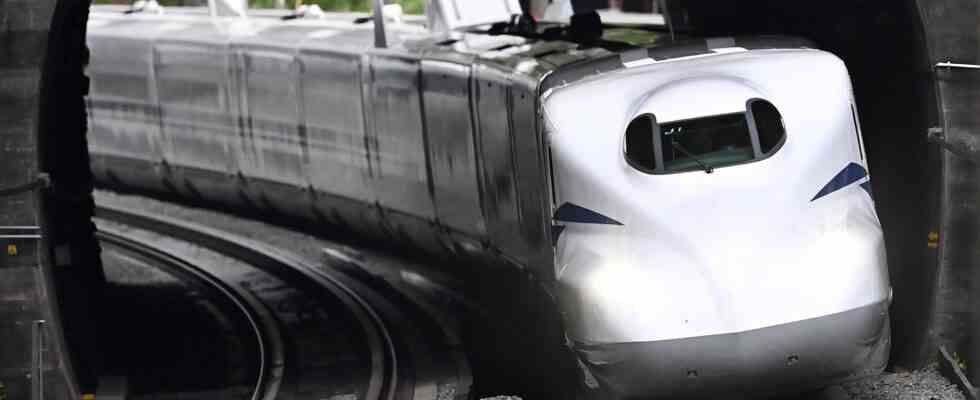Status: 04/19/2022 3:42 p.m
Because a train driver in Japan parked a train a minute late, his employer reduced his salary by 40 cents. The man complained about that. He gets the money back, but he did not get better working conditions.
Traveling by train in Japan is an experience. For example, the Shinkansen, Japan’s ICE, is something of a nation’s pride. When one of these futuristic trains with the long nose pulls into its terminus, it stands exactly twelve minutes.
Five minutes are calculated for boarding and alighting, seven for cleaning. The cleaning crew has exactly twelve seconds per row of seats before everything has to be clean. This is a fascinating spectacle for the German train driver who is plagued by delays.
The goal is to be precise to the second
Of course, this strict schedule, this discipline, also applies to the train drivers themselves: “In Japan, the train drivers are trained to control the trains to the minute or second,” explains the general secretary of the West Japan Railway Workers Union, Makoto Maekawa. “That’s also a matter of course for them over the course of their years of service. They try to drive on time and also strictly meet these expectations.”
Hirofumi Wada followed exactly this maxim during his 40 years with the West Japan Railwy Company (JR West). Until that fateful morning in June 2020 in western Japan province.
Wada was supposed to drive a discarded train to the depot. But he was waiting for the empty train on the wrong platform. It took two minutes before he noticed the mistake. The handover with the other engine driver was delayed accordingly.
Wada got another minute in
The unlucky guy hurried, accelerated, caught up a minute late, but still got to the depot a minute late. Then the employer said: no work, no wages – and finally deducted around 40 cents from his salary.
“The Japanese railways try so hard to be punctual, and I think the public expects the same,” says attorney Akane Nishiyama. “But the question is: if train drivers don’t do that, can their work be treated as non-work?” Nishiyama represents train driver Wada, who had sued against the wage deduction.
The plaintiff is less concerned with the 40 cents per se and more with a lasting change in corporate culture. A few seconds late and you have to take part in so-called disciplinary training: cleaning trains, writing letters of apology. Disgraceful treatment of employees.
Driver under pressure
The pressure to get trains to their destinations to the second led to disaster back in 2005. To make up for a delay, a train driver drove too fast into the curve. The train derailed, over 100 people died: “If there is a delay, this can lead to the driver becoming impatient or driving inappropriately to make up for the delay,” said Maekawa, a trade unionist.
That’s what Wada said too. “To prevent this from happening in the future, Wada wants to use this lawsuit to create an environment in which drivers can work properly without pressure and stress.”
Wada didn’t succeed. He was right, JR West has to pay him back the 40 cent wages. But the company does not have to pay either the almost 15,000 euros in damages or the legal fees. This judgment will hardly motivate the railway company to reconsider the way it treats its employees. Hirofumi Wada’s fight was in vain.
Ruling in bizarre train strike – West Japan Railway has to refund 40 cents
Thorsten Iffland, ARD Tokyo, April 19, 2022 2:48 p.m

